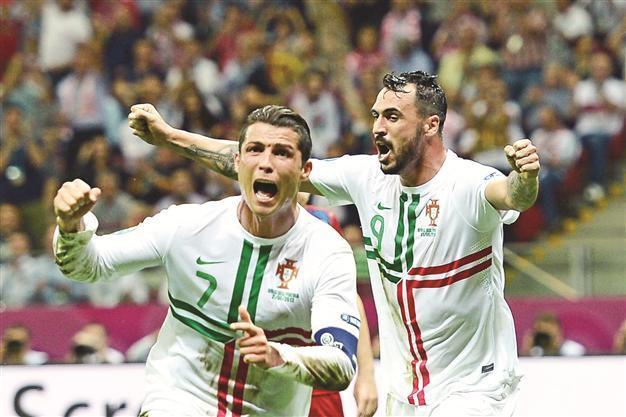Poland effect challenges Barcelona
WARSAW - Agence France-Presse

AFP Photo
Poland got such a boost from hosting the 2012 European football championships that many here think the country should replace Barcelona as the benchmark for benefits of sports competitions.
The “Barcelona Effect” is economists’ jargon for the long-term positive economic effect of hosting a major sporting event, in reference to the 1992 Olympics.
But just five months after the final whistle, Poland claims that hosting such a high-profile tournament as Euro 2012 has made the country a case-study to rival the Catalan capital.
The tournament catalyzed a massive shake-up of Poland’s ramshackle infrastructure and transformed its image on the global stage, providing potential for long-term gains.
“We think the Poland Effect is something more than the Barcelona Effect,” said Marcin Herra, boss of PL.2012, the state body that oversaw preparations for everything but the action on the pitch -- where the Polish team failed to shine.
“Barcelona was essentially about boosting tourism, but in Poland it’s been about the economy overall, the infrastructure, and know-how,” Herra added.
Barcelona was already established on the tourist circuit, but the number of visitors began climbing ahead of the Olympics and continued to do so as it became a magnet for trendy Europeans.
In contrast, Euro 2012 was held in largely uncharted territory.
Hosted along with Poland’s neighbor Ukraine from June 8 to July 1, it marked the first excursion of the quadrennial tournament behind the former Iron Curtain.
Defying the sceptics, the hosts strove to break with enduring cliches rooted in the communist era and prove their readiness.
The tournament went on to win plaudits from the fans and European football’s governing body UEFA -- which picks the hosts and owns the rights.
“I think the long-term impact of Euro 2012 is the most important part of the success story,” said Jakub Borowski, chief economist at Kredyt Bank and a lecturer at Warsaw School of Economics.
Borowski was lead author for a 2010 survey on Euro 2012’s potential impact, now freshly updated.
According to the London-based Brand Finance Institute, Euro 2012 helped lift Poland up its 100-nation ranking, from 24th to 20th.
In financial terms, the value of the brand “Poland” jumped 75 percent.
“The impact on our image is going to be long-term,” said Joanna Mucha, Poland’s sport and tourism minister.
